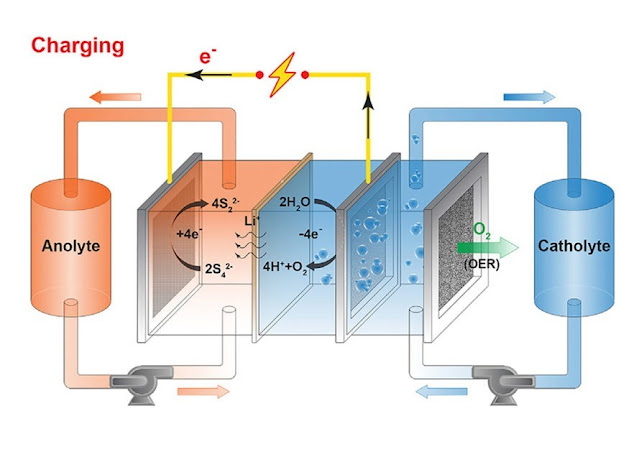Key Takeaways
Key players operating in the monoclonal antibody therapeutics are IOI Loders
Croklaan, Ghana Nuts Company Ltd., and The Savannah Fruits Company. Monoclonal
antibodies have revolutionized cancer treatment over the past decade. Companies
are investing heavily in R&D to develop novel monoclonal antibodies for
various cancer types along with autoimmune diseases. Growing geriatric
population also increases the risk of developing cancer and other chronic
conditions, thereby raising demand for monoclonal antibody therapeutics. Rapid
advancements in genomics and proteomics have aided development of novel monoclonal
antibodies with higher specificity and less side effects.
Cancer prevalence has been increasing worldwide due to lifestyle changes and
prolonged life expectancy.
Monoclonal
Antibody Therapeutics Market Size have proven to be highly effective in treating
several cancer types like colorectal cancer, lung cancer and blood cancers.
Driven by need for targeted cancer therapeutics, demand for monoclonal antibody
drugs is witnessing strong growth. Technological advancements are helping
develop novel monoclonal antibody drug formulations with longer shelf life and
more convenient routes of administration like subcutaneous injections.
Market Trends
- Combination Therapy Emerging as Prominent Trend: Combining monoclonal
antibodies with other treatment modalities like chemotherapy, radiation or
other monoclonal antibody drugs is gaining prominence. Combination therapy
enables targeting of multiple pathways for better response.
- Biosimilars Emerge as Cost-effective Alternatives: With many prominent
monoclonal antibody drugs going off-patent, biosimilars provide long-term cost
savings opportunity to payers. However, interchangeability and automatic
substitution remain gray areas that need regulatory clarity.
Market Opportunities
- High Scope for Monoclonal Antibodies in Autoimmune Diseases: Various
autoimmune disorders have unmet needs that monoclonal antibodies are well
positioned to address. Diseases like rheumatoid arthritis, multiple sclerosis
and inflammatory bowel disease offer significant scope.
- Emerging Markets to Drive Future Growth: Developing countries in Asia Pacific
and Latin America are experiencing rising healthcare expenditure as well as
growing disease burden. This offers significant opportunities for monoclonal
antibody therapeutics market.
Impact of COVID-19 on Monoclonal Antibody Therapeutics Market Growth
The COVID-19 pandemic has adversely impacted the monoclonal antibody
therapeutics market growth. With lockdowns and restrictions imposed worldwide,
several elective surgeries and non-essential treatments were postponed, thereby
hampering the monoclonal antibody therapeutics sales. Also, disruptions in
supply chains led to shortages of raw materials and logistical delays,
adversely affecting the monoclonal antibody production. However, with COVID-19
infections rising rapidly, monoclonal antibodies emerged as a promising
treatment option. Several pharmaceutical companies accelerated their efforts to
develop novel monoclonal antibodies against SARS-CoV-2. Drugs like Bamlamivib
and REGEN-COV were approved for emergency/compassionate use to treat COVID-19.
As the pandemic situations improved with rising vaccination rates, the elective
and routine healthcare services resumed gradually. This increased the demand
for monoclonal antibodies used for treating cancer, autoimmune disorders and
other chronic conditions. The need to develop highly effective monoclonal
antibody drugs against various infectious diseases also increased tremendously
to better prepare for any future pandemics. Overall, though the pandemic
initially slowed down the monoclonal antibody therapeutics market growth,
increased R&D investments in developing novel monoclonal antibodies against
COVID-19 and other diseases are expected to drive faster growth in the
post-pandemic period. Continuous product innovation and rapid production
scale-up will be crucial for sustaining the growth momentum.
Monoclonal Antibody Therapeutics Market Concentration in the United States
The United States accounts for the major share of global monoclonal antibody
therapeutics market in terms of value. Advanced healthcare infrastructure, high
healthcare spending, presence of leading biopharma companies and faster
regulatory approvals have enabled the US to emerge as the largest and most
valuable market. The high incidence and increasing prevalence of chronic
diseases like cancer and cardiovascular disorders have also amplified the demand
for monoclonal antibody drugs in the US. With continual approvals of novel
antibodies and expansion of existing drug pipelines, the US monoclonal antibody
market is projected to grow further at an accelerated pace during the forecast
period. However, high drug prices remain a key challenge for market growth in
the region.
Fastest Growing Region for Monoclonal Antibody Therapeutics Market
Asia Pacific region is poised to register the fastest growth in the global
monoclonal antibody therapeutics market during the forecast period. Rising
healthcare expenditures, rapid economic developments, increasing sales of
biosimilars and growing patient access to modern medical technologies are some
of the factors driving the monoclonal antibody therapeutics demand in the Asia
Pacific region. Furthermore, growing geriatric population, rising prevalence of
lifestyle diseases and improving biopharmaceutical research infrastructure in
many Asia Pacific countries will complement the monoclonal antibody market
growth. Government initiatives to strengthen local pharmaceutical industries
are attracting global investments, contributing hugely to the monoclonal
antibody drugs commercialization across Asia Pacific.




Comments
Post a Comment